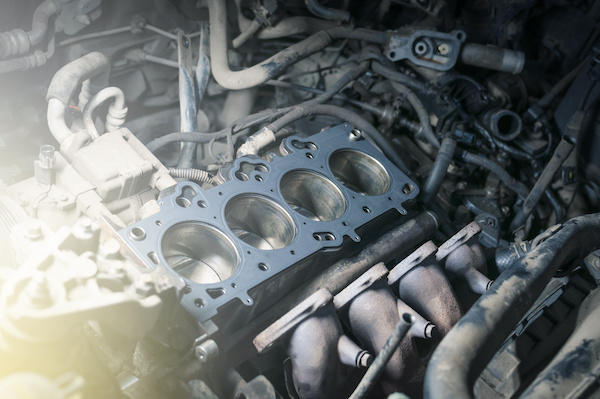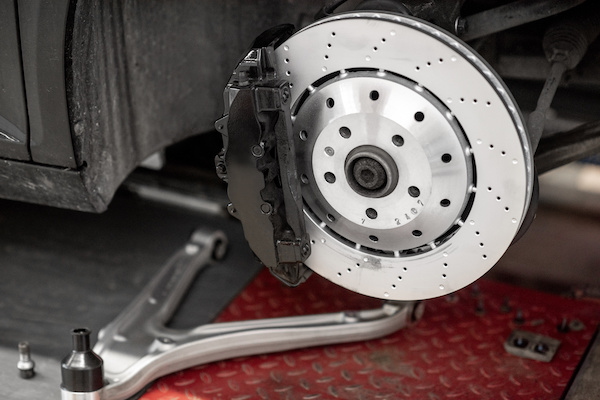Posted on 7/27/2022

Your head gasket has to tolerate a lot of heat and pressure to do its job, and if your car overheats it can cause the head gasket to blow. Keeping your car routinely maintained by an expert technician ensures oil changes, coolant, and other fluids are in good supply can go a long way in preventing a head gasket leak. The head gasket is basically the device that prevents different chemicals from mixing in your engine and doing harm to your car. The main functionality of the head gasket is keeping an airtight seal preventing fluids from locking up the engine, causing a fire, or detonation. As your car ages, it's normal for the head gasket to lose efficiency, that's where automotive maintenance becomes important! A seasoned mechanic will spot the warning signs that it's time to replace your head gasket. Red Flags of a Head Gasket Leak There are lots of symptoms to identify a head gasket leak and this list is by no means comprehensive, but if you do think your car's eng ... read more
Posted on 6/29/2022

Imagine coming to a stop at a light or stop sign just to hear the most horrendous and loudest squeak. If your brakes are noisy after you’ve applied pressure to the brake pedal, it can mean one of three things. 1 - Rust and/or Dirt If your brakes have accumulated a lot of dust and debris, the brake rotors can develop rust if not washed off. Whenever you press on the brakes when they’re in this condition, the brake pads can scrape some of this off. Once the grime or rust is gone, it will return to normal. 2 - Moisture Braking in wet conditions, like high humidity, rain, or snow, can cause your brakes to make some noise. This tends to happen in early mornings when moisture builds up on your brake rotor overnight. The sound should go away once the moisture dries up. 3 - Worn Brake Pads Over time, as your car puts on miles, your brake pads will naturally wear down. These parts often have metal indicators that make an audible signal when they wear off. Each time you brake ... read more
Posted on 4/3/2022

How to Create a Winter Emergency Kit for your Car When it comes to an emergency, anyone can be affected. So keep the following supplies in your winter car kit to be prepared for the worst-case scenario (particularly critical in the winter). Whether you have run out of gas, punctured a tire, or fallen off a slick, snowy road, whatever the situation is, having a car emergency kit can help you get back on the road safely and efficiently. Apart from the items listed below, it is highly recommended that you have a cell phone on hand. Keep your phone charged every time you get into your car, and keep a spare cell phone charger and rechargeable battery pack in your emergency kit in case you need to use them both. List of Things to Have in Your Emergency Kit for Your Car In your trunk, keep the items listed below safe. Idealistically, we would recommend storing these items in a clear, plastic container so that they are easy to see and find. Make your own kit or purchase one that ... read more
Posted on 4/3/2022

What is the Difference Between 4 Wheel Alignment and 2 Wheel Alignment? While driving along the road, you may find yourself battling with the steering wheel as your vehicle appears to want to drift to the right or left without warning. Is this anything you have experienced before? If you are having troubles like that, it may be time for an alignment. When you have your vehicle’s alignment checked, you are guaranteeing a safer and smoother ride while also extending the life of your tires. In addition of having your wheels aligned, it ensures excellent drivability while burning less energy (fuel savings). If your car has four wheels (which is most usually the case), you must alter the alignment of all four, correct? No, it is not always the case. Your car may require a front-end alignment. So, what is the difference between a front-end alignment and a 4-wheel alignment? There is not much difference between the two that may surprise you. Let us get right into it. Front-end alignme ... read more
Posted on 4/3/2022

Before Leaving, Here is a Car Checklist for Road Trips Allowing vehicle problems to ruin your next road trip is not a good idea. Instead, preparing your vehicle for the trip ahead of time by performing a few auto maintenance tasks can ensure that it is ready for the journey. You will not be able to prevent every technical problem, but checking your car’s fluids and parts before you head out on the road will help you avoid wasting important vacation time in the repair shop. For starters, here are some pointers to get you started: Check the Battery in Your Car Check the connection between your car’s battery and the rest of the vehicle to ensure tight and corrosion-free. If there is damage, you will need to disconnect the battery and use a wire brush to clean the contacts on the battery. It is recommended that you leave the checking and cleaning of your automobile battery to a mechanic if you aren’t comfortable with do ... read more